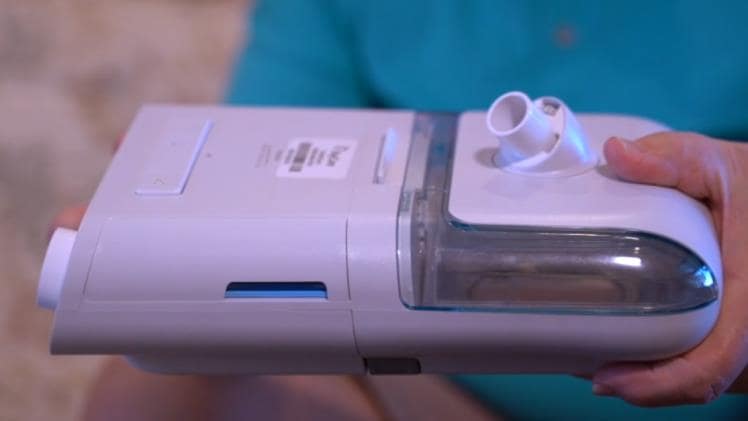Continuous positive airway pressure (CPAP) treatment has considerable advantages for those with sleep apnea. If sleep apnea is not treated, individuals may gasp, choke, or stop breathing altogether while they are asleep.
CPAP devices provide users pressurized air to help them keep their airways open while they sleep. While therapy can significantly reduce the symptoms of sleep apnea, some users have negative side effects, including dry mouth, difficulty breathing, or other irritations.
A CPAP mister can assist in reducing these symptoms. To maintain comfortable humidity in the respiratory passageways, the humidifier employs water. Humidifiers are included into the designs of several CPAP machine models, but not all of them.
We’ll go through the suggested CPAP humidifier procedures and talk like why distilled water seems best compared to other forms of water.
Use of a CPAP Humidifier and its Benefits
A CPAP machine’s continuous airflow may seem dry. Some CPAP users have throat and nasal discomfort, including dry mouth, sinus congestion, and nose bleeds. In order to enhance humidity and improve the comfort of CPAP breathing, a CPAP humidifier supplies water to the pressurised air.
Consider adding a mister to your CPAP system if you routinely wake up having dry airways despite using a CPAP machine. Additionally essential is routinely cleaning your CPAP machine, such as the mask as well as other parts of the apparatus.
Why Should Your CPAP Machine Use Distilled Water?
While using tap water in your CPAP machine is easy and may seem appealing, it may contain mineral deposits as well as other chemicals that might harm your machine or cause potentially dangerous bacterial growth.
Three categories may be made out of the choices for bottled water:
Water that has been purified: The majority of bottled water has been filtered to eliminate impurities, while it may still have some mineral content. The majority of the filtered drinking water sold in stores is made from local tap water. Reverse osmosis is a process whereby water is pushed under pressure across a semipermeable membrane to filter out germs and contaminants. These procedures routinely remineralize the bottled water they create to provide beneficial minerals for ingestion.
Water from springs is often mineral-rich because it originates in aquifers and undergoes natural filtration beneath before emerging as an above-ground spring. Similar to spring water, artesian water comes from an aquifer through an artesian well.
Mineral water: In order to be advertised, mineral water offered for sale in the US must originate from an underlying water source and meet certain requirements for total dissolved solids.
Distilled water: CPAP water is the best option for CPAP humidifiers since it is clean water devoid of minerals and microorganisms. Hospitals, laboratories, and manufacturing facilities routinely substitute distilled water for tap water because it prevents the buildup of limescale on equipment.
Your CPAP humidifier may develop mineral buildup, scaling, or bacterial development if the wrong kind of water is used. Additionally, it could strain your airways or damage your equipment or its parts.
Is purchasing distilled water preferable than creating your own?
Although it is rather simple to distil water at home, it is typically better to buy distilled water to be used in your CPAP machine. In order to guarantee that distilled water is properly treated before being distributed to customers, quality control procedures are implemented in laboratories and manufacturing facilities. When cleaning water at home, these procedures are not accessible.
Is purchasing distilled water preferable than creating your own?
Although distillation of water at home is quite simple, buying distilled water to be used in your CPAP machine is typically preferred. Before being given to customers, distilled water is put through a series of quality control checks at labs and manufacturing facilities. When distilling tapwater, these safety precautions are not accessible.
Is it feasible to substitute distilled water for purified or filtered water?
Utilize distilled water in place of refined or filtered water since they may include minerals that create buildup in your CPAP machine. Minerals, impurities, and pathogens are eliminated throughout the distillation process, leaving only the cleanest water behind.

